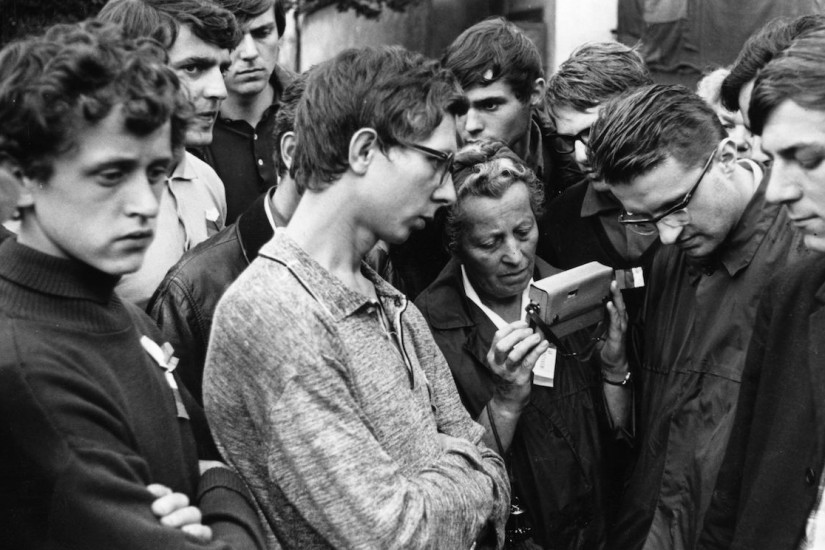Portraying east Europeans as captives also implied that they were cut off from the rest of the world. In reality, the Iron Curtain was never the impenetrable barrier many imagined it to be. Even if they could not travel themselves, east Europeans had access to ideas and information from the West. A number of western radio stations, including the BBC and Voice of America (VOA), served east Europeans during the Cold War.
One of these radio stations, Radio Free Europe (RFE), was created in 1950 specifically to broadcast to eastern Europe. Based in Munich and staffed by a mix of east European émigrés and Americans, RFE presented itself as a non-governmental organisation funded by the donations of ordinary US citizens who gave ‘truth dollars’ to enlighten captive east Europeans. In reality, the station relied on funding from the CIA.
RFE’s purpose was to provide a counterpoint to eastern Europe’s Communist-led news media. For RFE, ‘Communist news’ was ‘fake news’: it was propaganda with no basis in fact. RFE would challenge this propaganda by exposing its lies. RFE’s mission was to transmit objectively true news stories to eastern Europe. Its employees did not set out to spread disinformation. Nonetheless, their sense of what was newsworthy was strongly influenced by their anti-Communist ideology. Their broadcasts might not have been ‘fake’ but they were definitely biased. This bias would be transmitted to RFE’s audience as the truth.
One RFE programme, ‘The Other Side of the Coin’, was dedicated to exposing the lies in Communist news. This show, which had separate Czech- and Polish-language versions, would repeat stories from the Czechoslovak or Polish news, and then tell the audience what the real facts were. In a May 1951 episode for the Czech version, the narrator declared that the Czechoslovak press heaped up so many lies that the general rule of thumb was to always assume that the truth was precisely the opposite of what the Communist-dominated media asserted.
To judge the impact of their broadcasts to eastern Europe, western radio stations such as RFE were forced to rely on refugees who had illegally fled across the Iron Curtain. Data gathered from these refugees suggested that audiences at home did regard western radio broadcasts as more truthful and more objective than their local news media. A number of refugees reported that they followed the practice RFE suggested in ‘The Other Side of the Coin’, and always assumed that the truth was the opposite of whatever their local media told them. Some Polish refugees took this to extremes. They claimed that racial discrimination must not really exist in the US because they had read about it in Polish newspapers.
